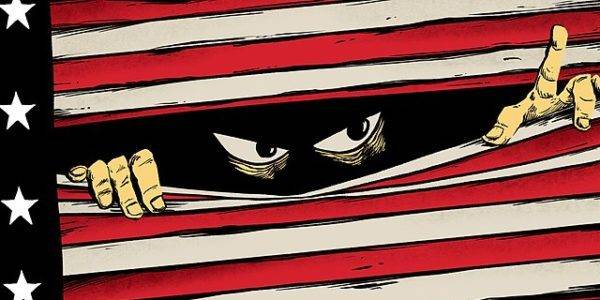(Ken Silva, Headline USA) Section 702 of the Foreign Intelligence Surveillance Act, which allows U.S. government agencies to target foreigners outside the U.S. for intelligence purposes, will sunset at the end of the year unless reauthorized by Congress.
With bipartisan opposition to renewal in place—led by Republicans still angry at how FISA was weaponized to spy on Donald Trump’s presidential campaign—agencies such as the FBI are starting to panic that their domestic surveillance powers could be reduced starting next year.
However, congressional leaders are reportedly devising a strategy to shoehorn Section 702 renewal into the annual the must-pass National Defense Authorization Act, which funds the military every year. This means that Republicans would have to vote against military funding if they want to oppose Section 702.
Privacy groups are up in arms over the anti-democratic move, which is reportedly being made in the House Permanent Select Committee on Intelligence.
“Such a move would arm-twist a bicameral, bipartisan majority that wants substantive reforms in Section 702. This majority exists because Section 702 is a program enacted by Congress to surveil foreigners on foreign soil but has been used by the FBI and other agencies as a domestic spying program,” warned the Project for Privacy & Surveillance Accountability, which noted that Section 702 has been used to warrantlessly capture the communications of 3.4 million Americans.
“If House and Senate leaders choose this path, it will force Members into an up-or-down vote on a critical bill, with limited debate and no opportunity to make last-minute amendments.”
According to PPSA, the proposed amendment to the NDAA does not include the much-needed reforms to FISA.
The proposal would limit warrants to “evidence-of-a-crime-only” searches, but PPSA said this would do almost nothing to close the loophole that has allowed the government to warrantlessly surveil millions of Americans—including Members of Congress, 19,000 donors to a congressional campaign, and protestors on the right and left.
Former House Judiciary Committee Chairman Bob Goodlatte also spoke against the proposal.
“There is no reason to rush this process and give the Administration what it wants by sneaking HPSCI’s deeply flawed proposal into the NDAA,” Goodlatte said. “In fact, the current Section 702 FISA Court certification does not expire until April 10, 2024, which means Congress has several months to put together a package of real reforms that could justify extending Section 702.”
Ken Silva is a staff writer at Headline USA. Follow him at twitter.com/jd_cashless.

